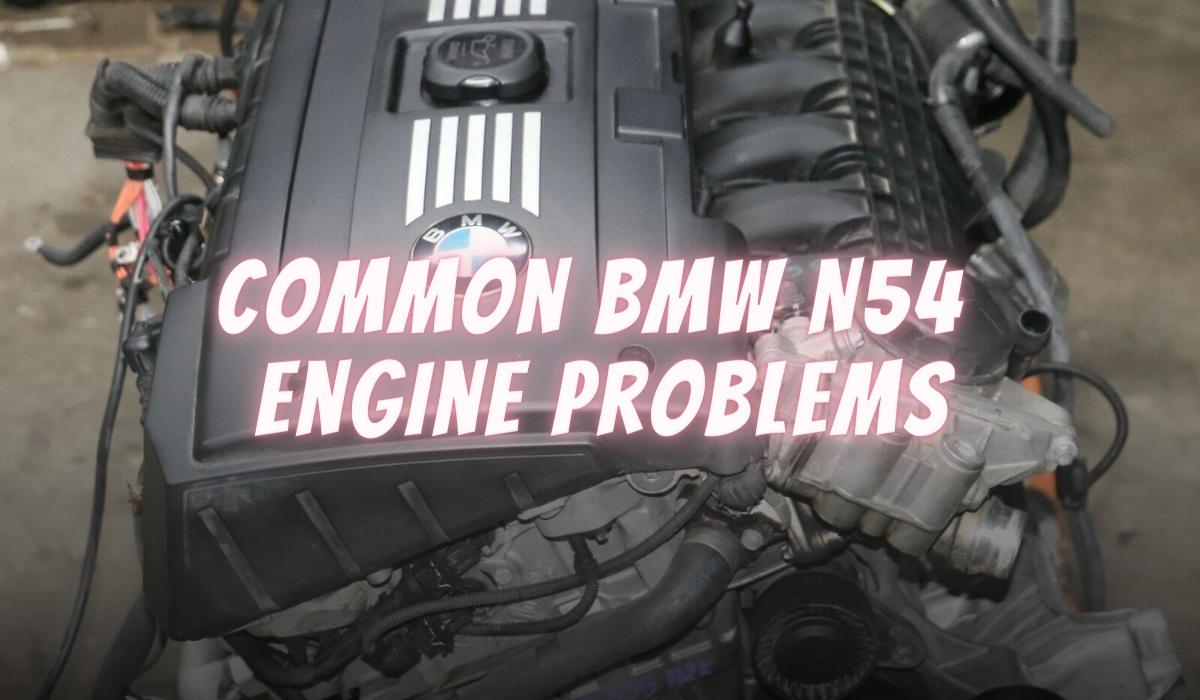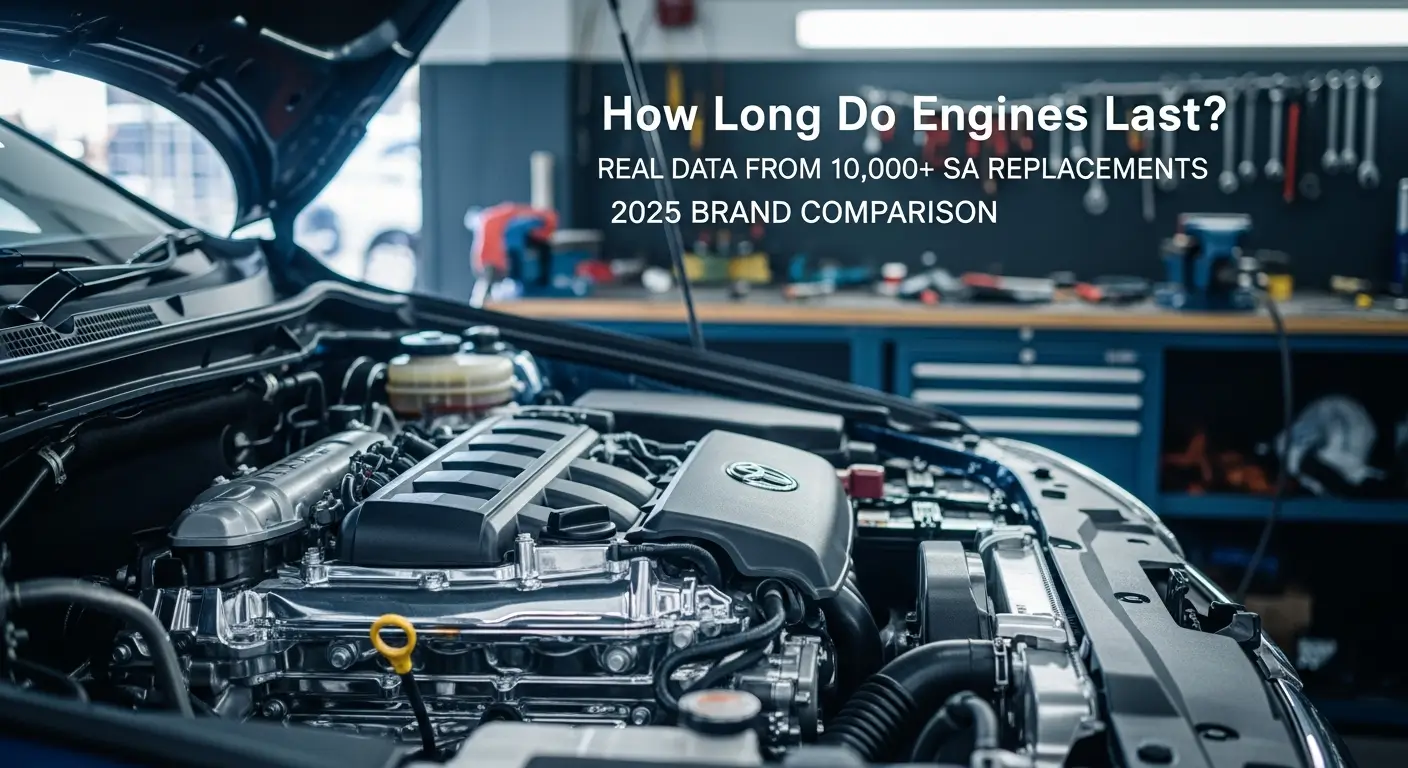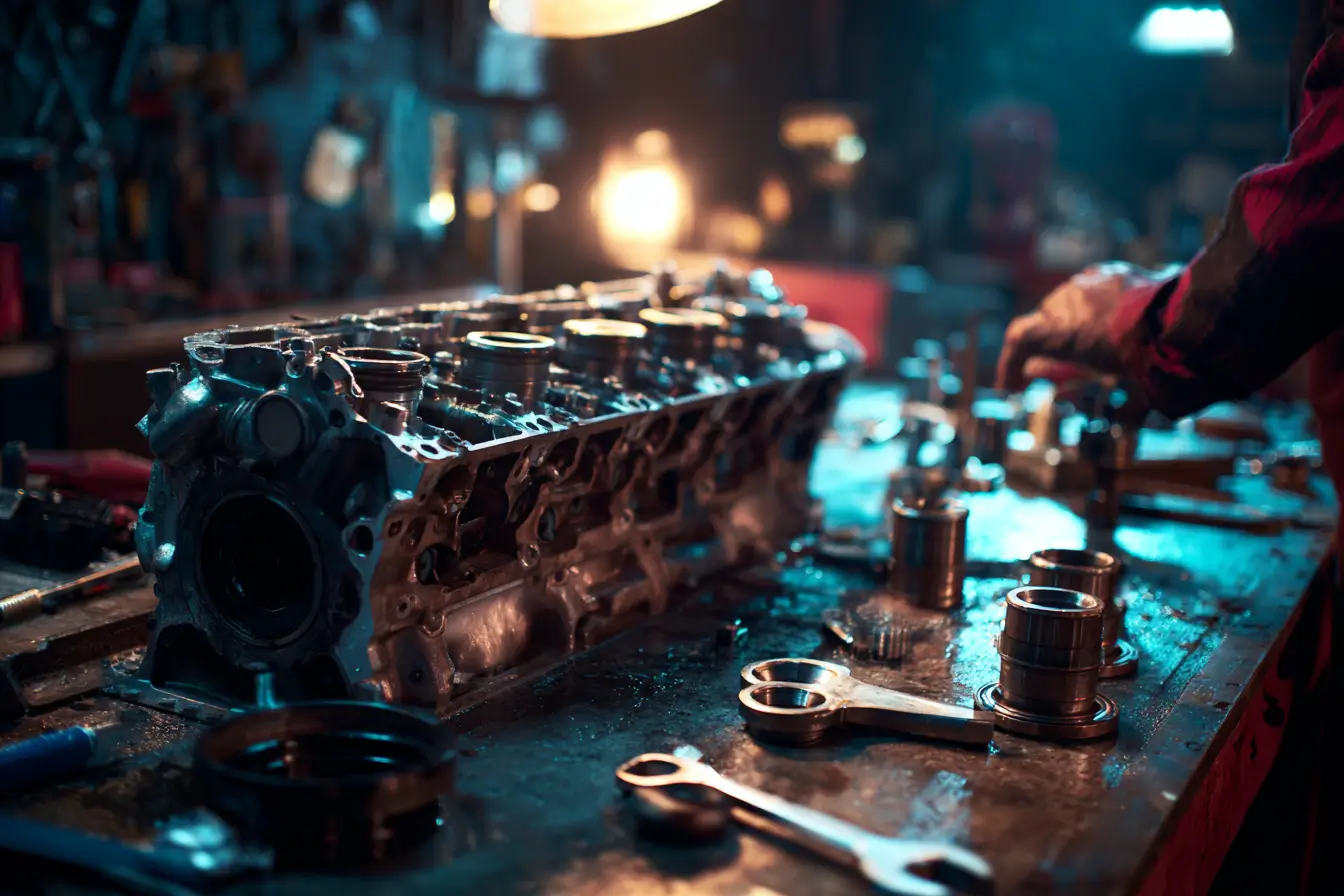
BMW N54 Engine Problems: Complete Twin-Turbo Troubleshooting Guide
Key Takeaways
| Problem | Main Symptoms | Possible Causes |
|---|---|---|
| Wastegate Rattle | Rattling noise, reduced power, exhaust smoke | Actuator arm wear, turbo bearing failure |
| High-Pressure Fuel Pump Failure | Poor acceleration, limp mode, check engine light | Manufacturing defect, internal component wear |
| Fuel Injector Problems | Cold start issues, misfires, rough idle | Carbon buildup, injector seal failure |
| Chargepipe Boost Leaks | Power loss, whistling sounds, turbo lag | Plastic construction failure, high boost pressure |
| Valve Cover Oil Leaks | Oil smell, spark plug contamination | Heat cycling damage, gasket deterioration |
| Carbon Buildup | Performance loss, misfires, intake restrictions | Direct injection design, fuel quality issues |
BMW’s N54 twin-turbo inline-6 engine represents a pivotal moment in automotive history, introducing the first production twin-turbo inline-6 with direct injection. Produced from 2006 to 2016, this 3.0-liter powerplant delivered exceptional performance while establishing BMW’s turbocharged engine legacy across South Africa’s premium vehicle market.
Despite its impressive capabilities and multiple awards, the N54 presents several well-documented reliability challenges that owners should understand for proactive maintenance and informed ownership decisions.
BMW N54 Engine Specifications
| Specification | Details |
|---|---|
| Engine Code | N54B30 |
| Displacement | 2,979cc (3.0L) |
| Configuration | Inline-6 Twin-Turbo DOHC |
| Power Output | 225-400 hp (depending on tune) |
| Torque | 300-600 Nm (depending on tune) |
| Compression Ratio | 10.2:1 |
| Turbochargers | Twin KKK K03 (parallel) |
| Fuel System | Direct Injection + Port Injection |
| Valvetrain | VANOS Variable Timing |
| Service Interval | 15,000-25,000 km |
BMW Models with N54 Engine:
E Series: 1 Series (E82), 3 Series (E90/91/92/93), 5 Series (E60/61), X6 (E71), Z4 (E89) F Series: 2 Series (F22), 3 Series (F30), 4 Series (F32)
1. Wastegate Rattle / Turbocharger Failure
Causes
- Wastegate actuator arm and rod wear from thermal cycling
- Turbocharger bearing deterioration over time and mileage
- High boost pressure applications accelerating component fatigue
- Carbon buildup interfering with wastegate operation
- Manufacturing tolerances allowing excessive play development
Symptoms
- Distinctive metallic rattling noise from engine bay, especially on startup
- Significant power reduction and poor acceleration response
- Low boost pressure fault codes appearing
- Blue or white exhaust smoke from turbo oil leaks
- Engine entering limp mode under load conditions
Solution
- Complete turbocharger replacement (both turbos recommended)
- Wastegate actuator recalibration as temporary measure
- Oil and filter change to ensure clean lubrication
- Intercooler and charge pipe inspection for debris
- ECU software update to optimize turbo control
DIY Difficulty / Hours
- Diagnostic confirmation: Intermediate / 2-3 hours
- Turbocharger replacement: Expert only / 15-20 hours
- Wastegate adjustment: Professional only / 3-4 hours
Warranty Coverage
BMW extended warranty covers turbochargers for 10 years or 130,000 km due to the widespread nature of this issue.
Cost: R50,000-R80,000 for complete twin-turbo replacement
2. High-Pressure Fuel Pump (HPFP) Failure
Causes
- Manufacturing defects in specific production batches
- Internal component wear causing pressure loss
- Fuel quality issues damaging pump internals
- Age-related seal deterioration allowing fuel leakage
- Electrical connector corrosion affecting pump operation
Symptoms
- Poor acceleration and reduced engine power
- Check engine light with fuel pressure codes
- Engine entering limp mode during acceleration
- Rough idle and hesitation during cold starts
- Complete loss of power in severe cases
Solution
- High-pressure fuel pump replacement with updated design
- Fuel system pressure testing and calibration
- Low-pressure fuel pump inspection and replacement if needed
- Fuel filter replacement and system cleaning
- ECU adaptation programming for new pump
DIY Difficulty / Hours
- Fuel pressure testing: Advanced / 2-3 hours
- HPFP replacement: Expert only / 6-10 hours
- System calibration: Professional only / 1-2 hours
Common Fault Codes
P142E (low fuel pressure), 2FBF (injection pressure), 2FBE (pressure after engine stop), 29DC (shutoff valve), 29E2 (fuel rail), P030X (cylinder misfire)
Cost: R15,000-R25,000 for HPFP replacement and programming
3. Fuel Injector Leaks and Clogs
Causes
- Carbon buildup restricting injector spray patterns
- Injector seal deterioration allowing fuel leakage
- Poor fuel quality causing injector fouling
- Direct injection design concentrating deposits
- Insufficient cleaning from short-trip driving patterns
Symptoms
- Difficult cold starting and extended cranking
- Engine misfires, particularly when cold
- Rough idle and poor fuel economy
- Fuel-contaminated spark plugs and ignition coils
- Strong fuel odor from engine bay
Solution
- Fuel injector cleaning or replacement
- Walnut blasting to remove carbon deposits
- Oil catch can installation for prevention
- Regular fuel system cleaning treatments
- High-RPM highway driving for carbon burn-off
DIY Difficulty / Hours
- Injector inspection: Advanced / 3-4 hours
- Injector replacement: Expert only / 8-12 hours
- Walnut blasting: Professional only / 4-6 hours
Prevention Strategy
Monthly fuel system cleaner, oil catch can installation, and regular walnut blasting every 50,000 km significantly reduce injector problems.
Cost: R20,000-R35,000 for complete injector set replacement
4. Chargepipe Boost Leaks
Causes
- Plastic chargepipe construction inadequate for high boost pressures
- Thermal cycling causing material fatigue and cracking
- Tuning modifications increasing boost beyond design limits
- Age-related deterioration of plastic components
- Improper installation torque causing stress concentrations
Symptoms
- Sudden power loss during acceleration
- Audible whooshing or whistling sounds under boost
- Increased turbo lag and poor throttle response
- Check engine light with boost pressure codes
- Visible steam or pressure release from engine bay
Solution
- Aftermarket aluminum chargepipe installation
- All boost-related connections inspection and replacement
- Intercooler pressure testing for additional leaks
- Blow-off valve operation verification
- ECU boost target recalibration if needed
DIY Difficulty / Hours
- Leak detection: Intermediate / 2-3 hours
- Chargepipe replacement: Advanced / 4-6 hours
- Pressure testing: Intermediate / 1-2 hours
Tuned Engine Risk
Any N54 running higher than stock boost pressures should upgrade to aluminum chargepipes proactively to prevent roadside failures.
Cost: R3,000-R8,000 for aluminum chargepipe upgrade
5. Valve Cover Oil Leaks
Causes
- Plastic valve cover warping from turbo engine heat cycling
- Valve cover gasket deterioration over time and mileage
- Excessive crankcase pressure from worn PCV components
- Manufacturing design inadequate for thermal stress
- Oil contamination accelerating seal degradation
Symptoms
- Oil-contaminated ignition coils and spark plugs
- Burning oil smell from engine bay during operation
- Visible oil accumulation around valve cover edges
- Engine smoking from oil dripping onto exhaust components
- Low oil level warnings appearing frequently
Solution
- Complete valve cover replacement with updated design
- Valve cover gasket replacement using improved materials
- PCV system inspection and component replacement
- Spark plug and ignition coil cleaning or replacement
- Engine bay degreasing and oil residue removal
DIY Difficulty / Hours
- Oil leak inspection: Easy / 1-2 hours
- Valve cover gasket replacement: Advanced / 6-8 hours
- Complete valve cover replacement: Advanced / 8-12 hours
Detection Method
Remove ignition coils and spark plugs to check for oil contamination, as valve cover leaks rarely trigger diagnostic codes.
Cost: R4,000-R12,000 depending on gasket-only or complete cover replacement
6. Carbon Buildup (Direct Injection Issue)
Causes
- Direct injection design preventing fuel wash of intake valves
- Poor fuel quality lacking adequate detergent additives
- Short-trip driving patterns preventing carbon burn-off
- PCV system malfunction increasing oil vapor deposits
- Turbocharger oil seepage contaminating intake system
Symptoms
- Gradual power loss and reduced acceleration
- Engine misfires under load conditions
- Rough idle and poor fuel economy
- Intake manifold restriction affecting airflow
- Reduced engine responsiveness throughout RPM range
Solution
- Professional walnut blasting carbon removal service
- Oil catch can installation to prevent future buildup
- Regular high-RPM highway driving sessions
- Quality fuel with enhanced detergent packages
- PCV system component replacement and upgrade
DIY Difficulty / Hours
- Carbon inspection: Advanced / 2-3 hours
- Walnut blasting: Professional only / 6-8 hours
- Oil catch can installation: Intermediate / 3-4 hours
Maintenance Schedule
Walnut blasting every 50,000-80,000 km prevents carbon buildup from affecting performance, especially important for tuned engines.
Cost: R8,000-R15,000 for professional walnut blasting service
N54 Maintenance Schedule
| Service Item | Interval | Importance |
|---|---|---|
| Engine Oil Change | 8,000-12,000 km | Critical |
| Walnut Blasting | 50,000-80,000 km | High |
| Fuel Injector Service | 80,000-120,000 km | High |
| Turbocharger Inspection | 100,000-130,000 km | High |
| HPFP Monitoring | Ongoing | Critical |
| Spark Plug Replacement | 40,000-60,000 km | Medium |
Performance Modifications Considerations
The N54’s robust internals make it highly responsive to tuning, but reliability decreases with increased power output. Popular modifications include:
- Stage 1 Tune: 300-350 hp with intake and exhaust
- Stage 2 Tune: 400+ hp with turbo and fuel upgrades
- Supporting Modifications: Oil catch can, chargepipes, intercooler, fuel injectors
FAQ
What is the most serious BMW N54 engine problem?
The high-pressure fuel pump (HPFP) failure is considered the most serious issue, as it can leave you stranded without warning. This problem affects a significant percentage of N54 engines and can cause complete power loss. BMW extended the warranty to 10 years due to the widespread nature of this defect.
Is the N54 engine worth buying despite its problems?
For enthusiasts who understand the maintenance requirements, yes. The N54 offers exceptional tuning potential and performance when properly maintained. However, budget for higher maintenance costs and be prepared for predictable issues like HPFP replacement and carbon cleaning.
How much should I budget annually for N54 maintenance?
Plan for R15,000-R25,000 annually including routine maintenance and one major repair. Major items include HPFP replacement (R15,000-R25,000), turbo replacement (R50,000-R80,000), and walnut blasting (R8,000-R15,000). These typically occur at predictable intervals.
Can I prevent N54 carbon buildup?
While you cannot eliminate carbon buildup entirely due to the direct injection design, you can significantly reduce it by installing an oil catch can, using quality fuel, performing regular walnut blasting every 50,000-80,000 km, and occasionally driving at high RPMs on the highway.
Should I tune my N54 engine?
Tuning an N54 can provide significant power gains, but it accelerates wear on already problematic components. If you tune, budget for more frequent turbo replacement, stronger chargepipes, and more aggressive maintenance schedules. Many consider it worth the trade-off for the performance gains.
What’s the difference between early and late N54 engines?
Later N54 engines (2010+) received some improvements including updated HPFP designs and revised software. However, they still experience the same fundamental issues. Index 12 injectors in later engines are generally more reliable than earlier versions.
How do I know if my N54 turbos are failing?
Listen for rattling noises on startup (wastegate rattle), watch for blue smoke from the exhaust, monitor for reduced power, and pay attention to oil consumption. Many N54 turbos fail between 100,000-150,000 km, with some lasting longer with proper maintenance.
References and Further Reading
Technical Resources
- BMW N54 Fuel Injector Technical Service Bulletin (PDF)
- BMW Technical Service Bulletins Database
- BMW N54 Technical Analysis - BimmerPub (PDF)
Performance and Tuning
- BMW N54 Walnut Blasting DIY Guide
- N54 Turbocharger Replacement Guide
- 2011 BMW 335i Technical Service Bulletins
Maintenance Resources
Community Resources
- Bimmerfest E90/E92/E93 Technical Forums
- N54Tech Community and Technical Support
- 1Addicts BMW N54 Owner Community
Conclusion
The BMW N54 engine offers exceptional performance potential when properly maintained, but requires more attention than naturally aspirated engines. Understanding these common issues enables proactive maintenance, preventing minor problems from becoming expensive failures.
When repair costs exceed the vehicle’s value, consider quality replacement engines from reputable BMW engines for sale suppliers throughout South Africa. Professional diagnostic services can determine the most cost-effective approach for your specific situation.
Regular maintenance, quality fluids, and prompt attention to symptoms ensure reliable service from these sophisticated twin-turbo powerplants.
Related Articles
Explore more insights on similar topics

How Long Do Engines Last on Average? Complete Longevity Guide
Understand real-world engine lifespan ranges, warning signs, lifecycle stages, costs, and maintenance best practices for South African drivers.

How Does an Engine Overhaul Work? Complete Guide to Engine Rebuilds
Learn everything about engine overhauls: types, warning signs, process, costs, and when to rebuild vs replace your engine in South Africa.
.webp)
Timing Chain vs Timing Belt: Complete Guide to Cambelt Replacement & Lifespan
Learn everything about timing chains and timing belts (cambelts): differences, lifespans, replacement costs, and which is better for your engine in South Africa.
Important Disclaimer
This content is for informational purposes only and is based on research from automotive industry sources. Engine Finder is not a certified automotive repair facility. Always consult with qualified automotive professionals before performing any repairs or maintenance. Improper repairs can result in personal injury, property damage, or vehicle malfunction. We assume no responsibility for actions taken based on this information.
